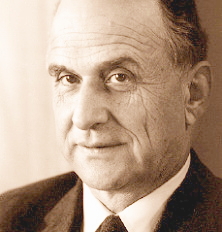A Quote by Marie von Ebner-Eschenbach
The simplest and most familiar truth seems new and wonderful the instant we ourselves experience it for the first time.
Related Quotes
Our days are a kaleidoscope. Every instant a change takes place in the contents. New harmonies, new contrasts, new combinations of every sort. Nothing ever happens twice alike. The most familiar people stand each moment in some new relation to each other, to their work, to surrounding objects. The most tranquil house, with the most serene inhabitants, living upon the utmost regularity of system, is yet exemplifying infinite diversities.
And yet we constantly reclaim some part of that primal spontaneity through the youngest among us, not only through their sorrow and anger but simply through everyday discoveries, life unwrapped. To see a child touch the piano keys for the first time, to watch a small body slice through the surface of the water in a clean dive, is to experience the shock, not of the new, but of the familiar revisited as though it were strange and wonderful.
The Bible is a wonderful book. It is the truth about the Truth. It is not the Truth. A sermon taken from the Bible can be a wonderful thing to hear. It is the truth about the truth about the truth. But it is not the truth. There have been many books written about the things contained in the Bible. I have written some myself. They can be quite wonderful to read. They are the truth about the truth about truth about the Truth. But they are NOT the Truth. Only Jesus Christ is the Truth. Sometimes the Truth can be drowned in a multitude of words.
For if as scientists we seek simplicity, then obviously we try the simplest surviving theory first, and retreat from it only when it proves false. Not this course, but any other, requires explanation. If you want to go somewhere quickly, and several alternate routes are equally likely to be open, no one asks why you take the shortest. The simplest theory is to be chosen not because it is the most likely to be true but because it is scientifically the most rewarding among equally likely alternatives. We aim at simplicity and hope for truth.
A man must first of all understand certain things. He has thousands of false ideas and false conceptions, chiefly about himself, and he must get rid of some of them before beginning to acquire anything new. Otherwise the new will be built on a wrong foundation and the result will be worse than before. To speak the truth is the most difficult thing in the world; one must study a great deal and for a long time in order to speak the truth. The wish alone is not enough. To speak the truth one must know what the truth is and what a lie is, and first of all in oneself. And this nobody wants to know.
In this modern day and age, we have instant coffee, instant tea - instant disbelief. That's the reason we will never become anything. It is because we will never believe in ourselves. We will always listen to the mass majority. If everybody's making fun of you and criticizing you, then you know you're on the right track. 'Cause most people ain't got it.
We always seem to be surprised by events, especially by catastrophes, but also by wonderful events. Look at 1990, the year that the Soviet Union collapsed and apartheid in South Africa collapsed and the Berlin Wall came down. I don't know anyone who foresaw those events. It seems to me that as a species we are constantly trying to adapt ourselves to the unexpected. In the meantime, we talk as if we are in control, and we're not. This seems to me to be the truth about the twentieth century.





































